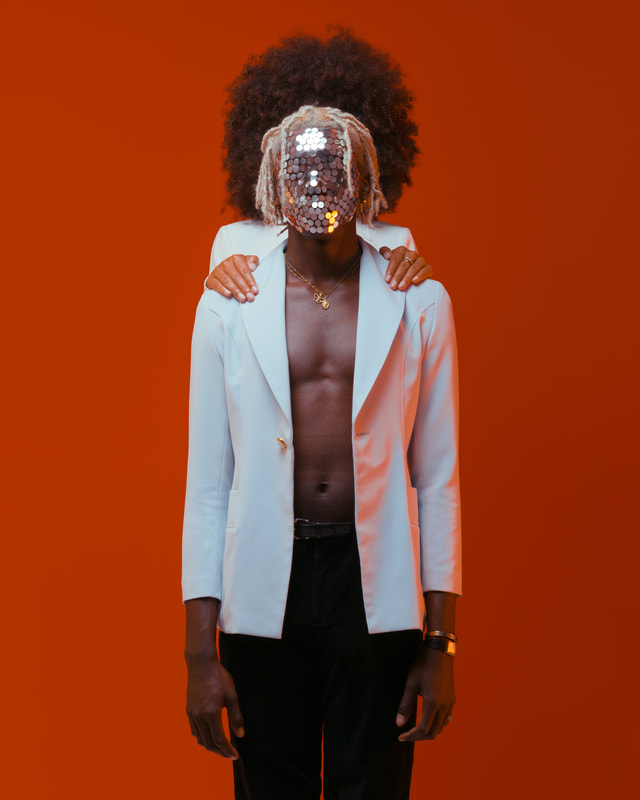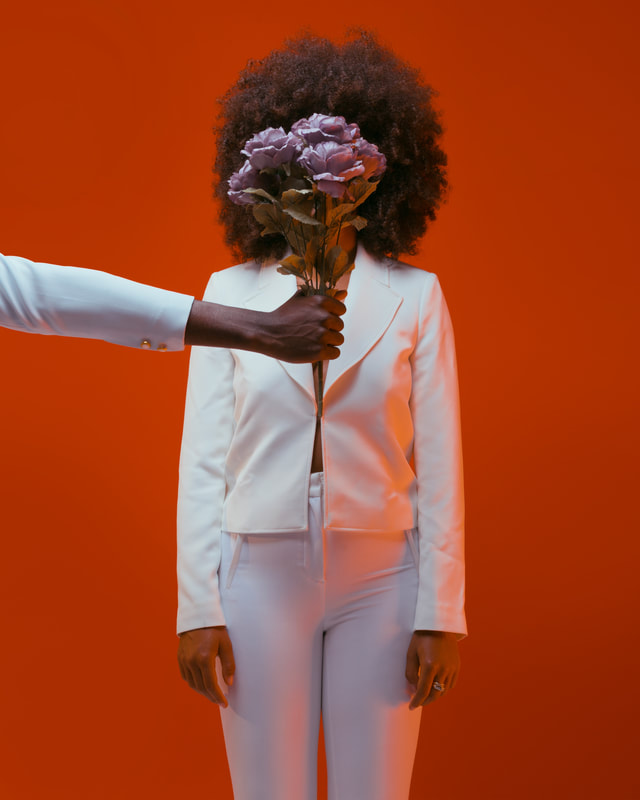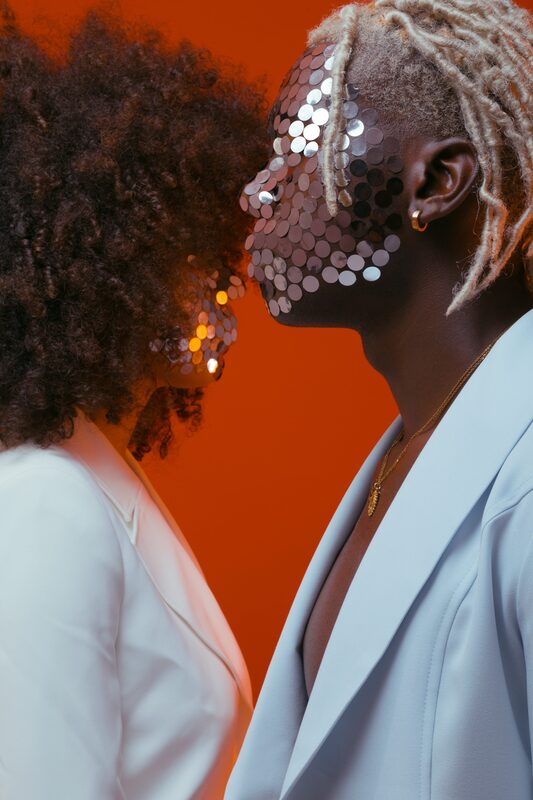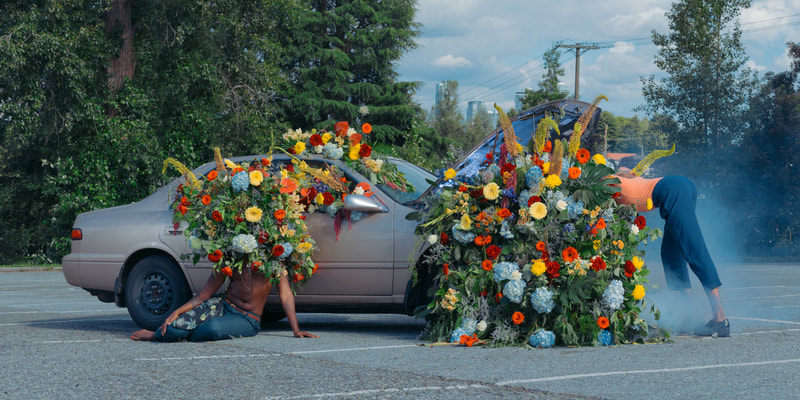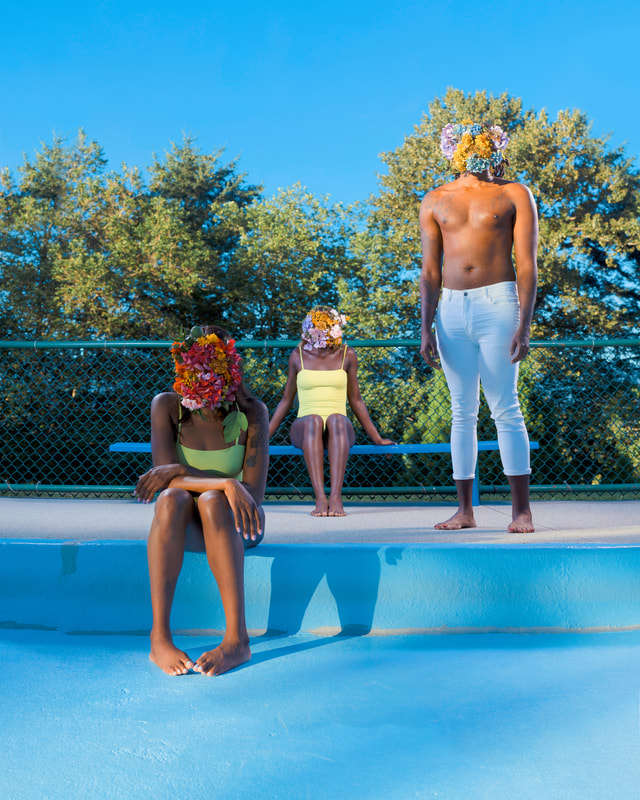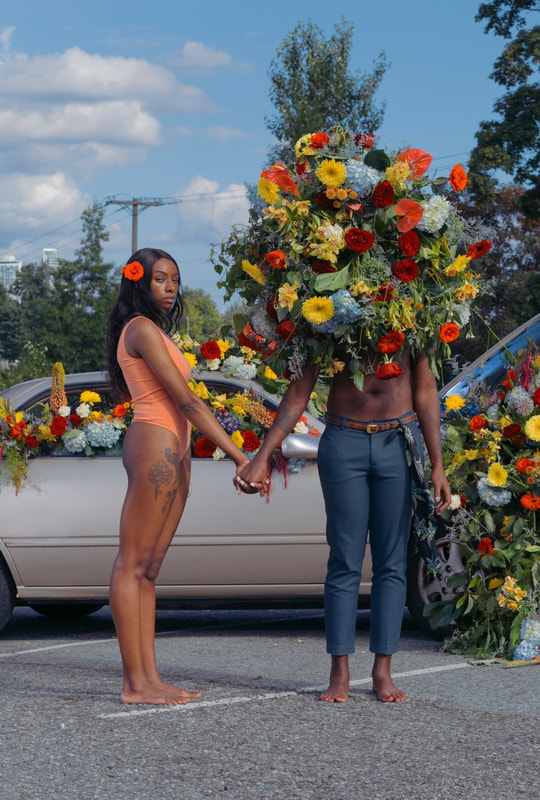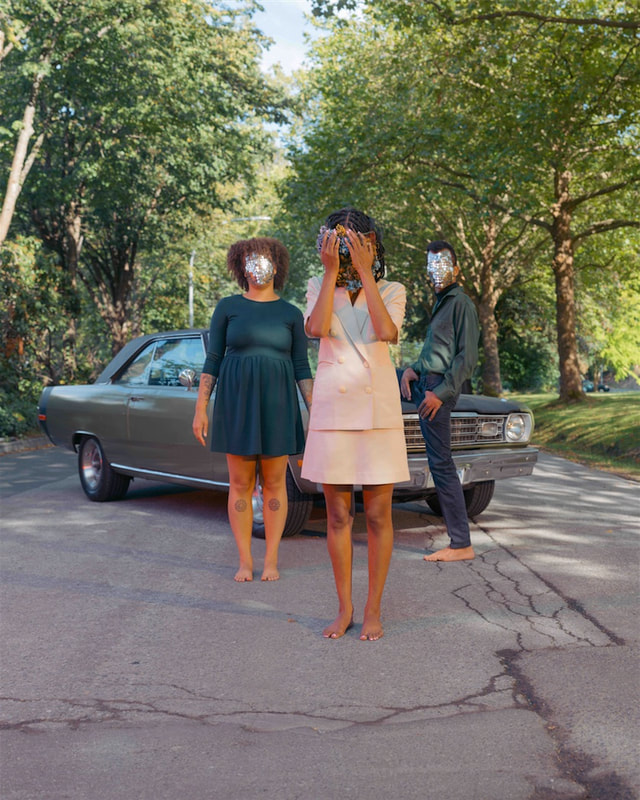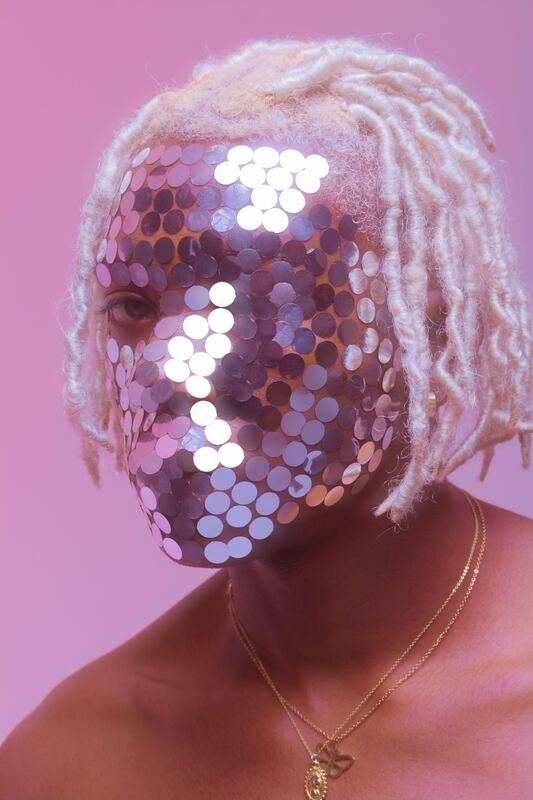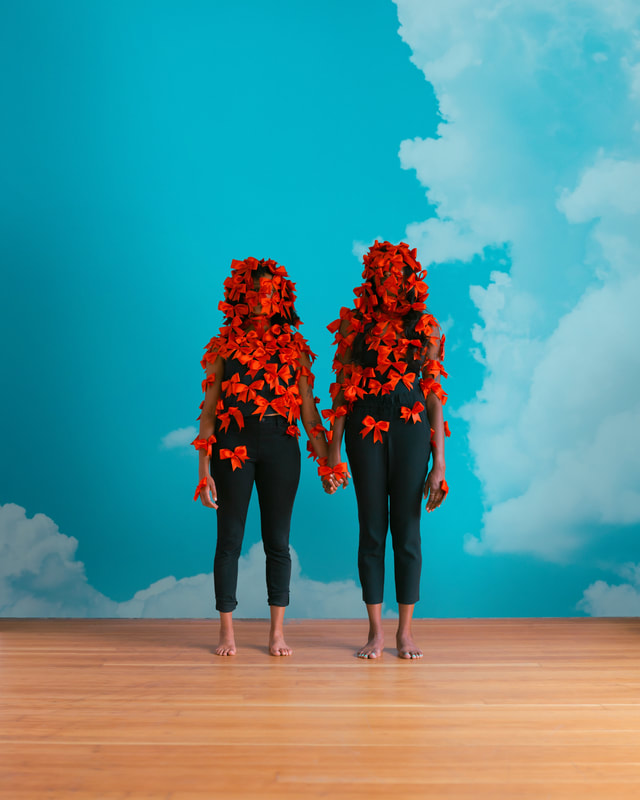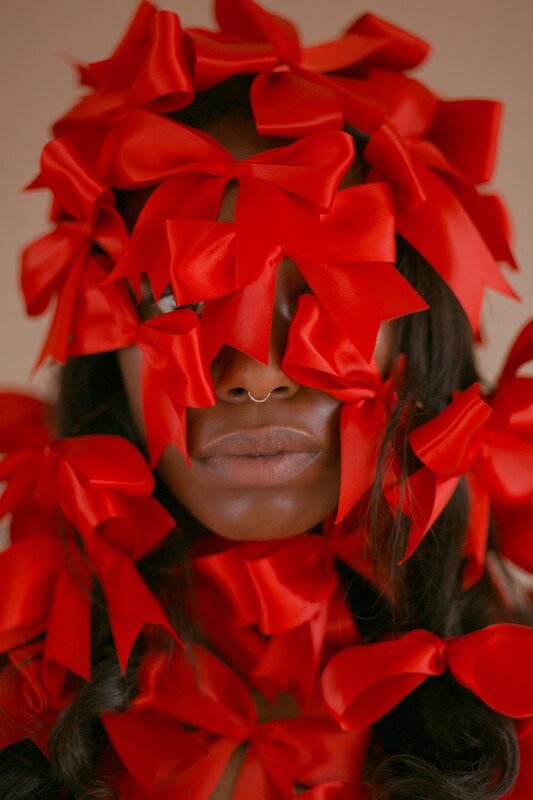THE ERASER - ESCAPING THE FUTURE | KRISS MUNSYA
October 16 - November 4, 2021
The Eraser Series
The Eraser juxtaposes experiences of the past with desires of the future. It is a story of change and transformation that centers a Black man revisiting experiences that have been normalized in critical reflection of internalized supremacy. Things that at the time he thought were normal now have new meaning and he wants to share the lessons within.
With The Eraser, he aims to translate his experiences into invitations to reflect on the impacts of supremacy.This project reflects critically on the past to inform transformational offerings for the future. As the protagonist revisits memories to re-imagine his past, he tries to erase the dominance of whiteness by transposing Blackness. However, memory is not easy to manipulate! Digging into the past always brings up unexpected things. With that, it imagines creative reclamations of space.
The Eraser juxtaposes experiences of the past with desires of the future. It is a story of change and transformation that centers a Black man revisiting experiences that have been normalized in critical reflection of internalized supremacy. Things that at the time he thought were normal now have new meaning and he wants to share the lessons within.
With The Eraser, he aims to translate his experiences into invitations to reflect on the impacts of supremacy.This project reflects critically on the past to inform transformational offerings for the future. As the protagonist revisits memories to re-imagine his past, he tries to erase the dominance of whiteness by transposing Blackness. However, memory is not easy to manipulate! Digging into the past always brings up unexpected things. With that, it imagines creative reclamations of space.
HIGHWAY REFLECTION
When he was 6 years old, his family went on a road trip to Germany. They stopped at a really low budget motel on the highway. He remembers he couldn’t sleep that night because of the sound of cars. The next day, his father and him played soccer in the parking lot while his sister and mother hung out on the grass.
At one point, the ball got away and rolled toward the fence separating them from the highway. On the other side of the highway, he could see a hotel. But that one was a fancy one. He could see rich white families in the pool. He remembers the patio was full of flowers. He was really jealous, and maybe a bit mad at his parents for choosing there they were staying.
He wanted to be on the other side of the highway.
It took him years to understand that he was exactly where he was supposed to be.
Now that he’s older, he’s trying to reclaim the past he never had. He’s trying to change his memories to change his future. But digging the past always brings up unexpected things.
When he was 6 years old, his family went on a road trip to Germany. They stopped at a really low budget motel on the highway. He remembers he couldn’t sleep that night because of the sound of cars. The next day, his father and him played soccer in the parking lot while his sister and mother hung out on the grass.
At one point, the ball got away and rolled toward the fence separating them from the highway. On the other side of the highway, he could see a hotel. But that one was a fancy one. He could see rich white families in the pool. He remembers the patio was full of flowers. He was really jealous, and maybe a bit mad at his parents for choosing there they were staying.
He wanted to be on the other side of the highway.
It took him years to understand that he was exactly where he was supposed to be.
Now that he’s older, he’s trying to reclaim the past he never had. He’s trying to change his memories to change his future. But digging the past always brings up unexpected things.
BLACK MIRROR
That night, he went home after seeing a group of friends. Mostly white people. He remembers their conversations. They were littered with racist bullshit. It was more than usual, and he felt sick as he made his way home.
He entered the bathroom, it was dark. The light was broken... He couldn’t see his reflection in the mirror. The mirror was black. For a few seconds, he actually hoped he’d disappeared. He was afraid to see what was in the mirror: someone he always tried to hide from others, but mostly from himself.
In the dark, the mirror was shattered. In each piece he could see a different reflection of himself; a myriad of truths about himself. He always knew he was multifaceted, dynamic, and complex. These were truths about himself his environment never wanted to accept.
He didn’t understand why people around him never wanted to see him entire- ly. See the black man, but also the indie rock fan, the soccer player, the artist, the friend, the lover, the immigrant, the clown, the ghost. He always wondered what they were seeing instead.
He realized years after that what they wanted to see in him, was themselves. He turned into the mirror of their own limitations. He became their expansion. He became their strength and let them take his energy and vision away from him.
The only moment he was truly himself was in that dark bathroom, in front of the black mirror. Multiple faces, multiple realities, multiple outcomes.
He remembered his parents. When they moved to Belgium in the late 80’s. He remembered how they were acting different in front of white people... It was their way to survive a world that was openly violent with them.
Now that he is older, he tries to reclaim the past he never had to change his future.
That night, he went home after seeing a group of friends. Mostly white people. He remembers their conversations. They were littered with racist bullshit. It was more than usual, and he felt sick as he made his way home.
He entered the bathroom, it was dark. The light was broken... He couldn’t see his reflection in the mirror. The mirror was black. For a few seconds, he actually hoped he’d disappeared. He was afraid to see what was in the mirror: someone he always tried to hide from others, but mostly from himself.
In the dark, the mirror was shattered. In each piece he could see a different reflection of himself; a myriad of truths about himself. He always knew he was multifaceted, dynamic, and complex. These were truths about himself his environment never wanted to accept.
He didn’t understand why people around him never wanted to see him entire- ly. See the black man, but also the indie rock fan, the soccer player, the artist, the friend, the lover, the immigrant, the clown, the ghost. He always wondered what they were seeing instead.
He realized years after that what they wanted to see in him, was themselves. He turned into the mirror of their own limitations. He became their expansion. He became their strength and let them take his energy and vision away from him.
The only moment he was truly himself was in that dark bathroom, in front of the black mirror. Multiple faces, multiple realities, multiple outcomes.
He remembered his parents. When they moved to Belgium in the late 80’s. He remembered how they were acting different in front of white people... It was their way to survive a world that was openly violent with them.
Now that he is older, he tries to reclaim the past he never had to change his future.
SCARLET RIBBONS
He was in a bar, talking with a white friend. That friend was saying how safe they felt walking in the streets of Portland at night. They shared that every time a stranger said something disrespectful or sexist to them, there was always someone there to defend them.
Before he could say anything, a person at the table behind them chimed in. A Black woman, who overheard them. She explained how her experiences were different. Whenever someone was disrespectful or violent or racist with her in the streets, no one ever defended her. Same city, different experiences.
He felt bad he hadn’t realized this before. After all he’d been through, it never occurred to him that being a Black woman was double the punishment.
Growing up male in patriarchy brought him a load of privileges. He couldn’t see them until later in life, really late. When he did, he was reminded of the story of the Scarlet Ribbons:
A little girl was praying on her bed with her father before going to sleep. She was asking for some scarlet ribbons for her hair. Her dad left the room and she was sure that he was on his way to the shop to get the ribbons and she would have them in the morning. Her dad left and never returned.
The story makes him feel like his sisters are still expecting their ribbons quietly in their rooms. He feels like he had taken all the ribbons and left them alone. Now it’s time to give them back...
He was in a bar, talking with a white friend. That friend was saying how safe they felt walking in the streets of Portland at night. They shared that every time a stranger said something disrespectful or sexist to them, there was always someone there to defend them.
Before he could say anything, a person at the table behind them chimed in. A Black woman, who overheard them. She explained how her experiences were different. Whenever someone was disrespectful or violent or racist with her in the streets, no one ever defended her. Same city, different experiences.
He felt bad he hadn’t realized this before. After all he’d been through, it never occurred to him that being a Black woman was double the punishment.
Growing up male in patriarchy brought him a load of privileges. He couldn’t see them until later in life, really late. When he did, he was reminded of the story of the Scarlet Ribbons:
A little girl was praying on her bed with her father before going to sleep. She was asking for some scarlet ribbons for her hair. Her dad left the room and she was sure that he was on his way to the shop to get the ribbons and she would have them in the morning. Her dad left and never returned.
The story makes him feel like his sisters are still expecting their ribbons quietly in their rooms. He feels like he had taken all the ribbons and left them alone. Now it’s time to give them back...
DOMESTIC ATTRACTION
He grew up in an African family in a predominantly white environment. From a young age, his friends, environment, and even sometimes his family made it very clear that he wasn’t Black enough, or too white. He was a Black kid trying to survive his own insecurities and problems while under pressure to be someone he wasn’t. Stuck somewhere in between.
Later, as a teenager, girls that he wanted to date repeatedly called him a Bounty [chocolate bar], white inside and black outside. That statement was hurtful. He was failing at being himself.
This changed his relationship with Black women. He always felt like he was failing them. So he tried to avoid them as much as possible.
It also changed his relationships with Black men.
As a teenager, he never really understood the concept of community. He didn’t have one. He had his family and his friends. His friends came from all different backgrounds.
One day, he was with who he thought were his friends. They had met another group of teenagers on a neighborhood soccer field to play. They started argu- ing about who was going to play next and things escalated quickly. A fight was inevitable. Most of the kids there were white or brown. There were only two Black kids. One in each group.
One of his friends yelled to everyone that the two Black kids should fight to decide who was going to take the field. They physically pushed them toward each other. They fought. He won, but left. He went home and cried. He had no idea why he was crying.
Now he knows. Racism is not only about discrimination against Black people, it also teaches us to hate each other. It took him years to not see other Black men as threats but as people to be interested in, to talk to and to love.
Now that he’s older he wants to reclaim that past he never had. He’s trying to reimagine his memories with acceptance by the community. But memory is a tricky one... There might be some glitches and bugs.
And starting to dig the past always brings up unexpected things.
He grew up in an African family in a predominantly white environment. From a young age, his friends, environment, and even sometimes his family made it very clear that he wasn’t Black enough, or too white. He was a Black kid trying to survive his own insecurities and problems while under pressure to be someone he wasn’t. Stuck somewhere in between.
Later, as a teenager, girls that he wanted to date repeatedly called him a Bounty [chocolate bar], white inside and black outside. That statement was hurtful. He was failing at being himself.
This changed his relationship with Black women. He always felt like he was failing them. So he tried to avoid them as much as possible.
It also changed his relationships with Black men.
As a teenager, he never really understood the concept of community. He didn’t have one. He had his family and his friends. His friends came from all different backgrounds.
One day, he was with who he thought were his friends. They had met another group of teenagers on a neighborhood soccer field to play. They started argu- ing about who was going to play next and things escalated quickly. A fight was inevitable. Most of the kids there were white or brown. There were only two Black kids. One in each group.
One of his friends yelled to everyone that the two Black kids should fight to decide who was going to take the field. They physically pushed them toward each other. They fought. He won, but left. He went home and cried. He had no idea why he was crying.
Now he knows. Racism is not only about discrimination against Black people, it also teaches us to hate each other. It took him years to not see other Black men as threats but as people to be interested in, to talk to and to love.
Now that he’s older he wants to reclaim that past he never had. He’s trying to reimagine his memories with acceptance by the community. But memory is a tricky one... There might be some glitches and bugs.
And starting to dig the past always brings up unexpected things.
